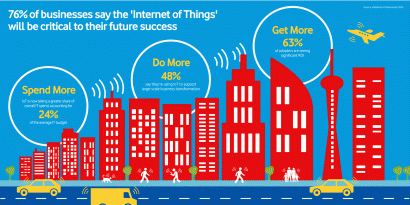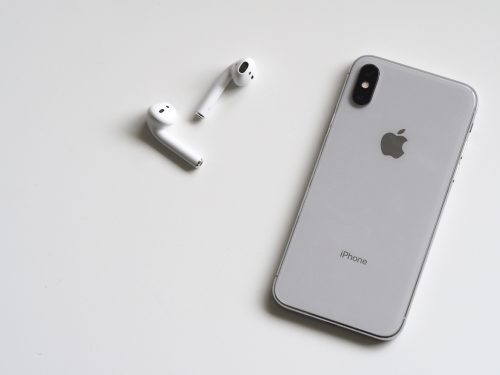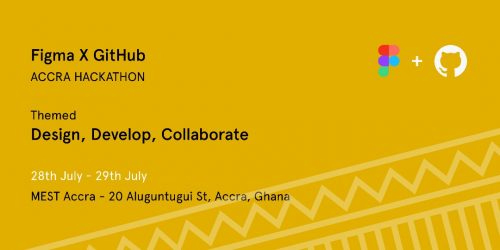During the Vodafone Internet of Things session, a panel took time to answer questions that attendees had concerning the IoT deployment. The panelists were
- Angela Mensah-Poku — Head of Business Solutions, Vodafone Ghana
- Matt Hatton — Founder and CEO, Machina Research
- Alex Opoku-Yeboah — Business Development Manager, M2M Terminals & Africa Markets, Vodacom SA
- Paveshen Govender — EHOD Unified Communications Sales, Vodafone Global Enterprise
Question: What do you think is the most challenging barrier to full scale IoT deployment?
Answer: The most value for IoT is in Africa because the barriers to deploying IoT are breaking down rapidly. The challenge we face has to do with cost rather than complexity. This is because everyday we advance and find new ways to do complex things.
Q: Will there be a time when cost will no longer be an issue?
A: It is likely to remain an issue. We are focused on running down cost substantially since there will always be the cost element associated with everything we do. What the consumer wants is to get value for the cost they incur and what the service provider is seeking is density of coverage, and what Vodafone IoT does is to make connectivity accessible (with a massive density of coverage) and affordable.
Q: Any comments on security and privacy when using IoT?
A: Addressing security is slightly easier than privacy. Everything is somewhat insecure because there is always some level of risk regardless. What one has to do is to work with the right partners and have the right systems in place, have resources located at the right places and make sure people are getting results at the expected places. Security has always been a process.
Privacy is more challenging because what one person thinks you should be able to do with the data and what another person thinks could be completely different. The key is between user buying and user acceptance. A user is anybody about whom data is created. When you are transparent about what you use your data for, it goes a long way to tackle the challenges with privacy in IoT. For example if you are using data to ensure that the transport system works better in a certain part of the country, explain that to everybody.
Q: Is there any internal collaboration between management of Vodafone across countries to make IoT better?
A: Yes! That’s why some of the executives present are from South Africa. However, Vodafone is not just collaborating internally. Vodafone is also collaborating with other networks to provide reliable services for the Ghanaian so that it is possible to be roaming with other networks when in areas with no Vodafone coverage.
Q: Is there any example of Ghana’s IoT development coming from the medical field?
A: Improving health services is something that is close to our heart. We encourage cross collaboration across the world. We are not using just IoT but also unified communications across the globe to promote monitoring, lecturing, and education in medical schools in the country. This allows medical students in Ghana to learn from live demonstrations of medical procedures that are taking place across the world. Some vaccines are not made in Ghana. They are moved across countries and are only viable at a particular temperature. How do you ensure that the vaccine remains within the temperature range that it requires? This is where IoT comes in.
Q: When will we see IoT in our homes, where my TV knows it has to go off at 10:30 p.m. without me being worried that my kids will be glued to it?
A: There is currently a debate going on with Vodafone groups about how to meet the consumer with IoT, so it is something that we are actively looking at. We are talking about things like vehicle tracking for home use, security and as crazy as it may sound, tracking your children. It’s about how creative our vendors and partners would want to be. You design it and we’ll power it. It’s not only about monitoring things, it’s also about saving lives.
Q: There is this increasing talk about a lack of infrastructure in Africa and for IoT to thrive it will depend on infrastructure. Is this a drawback?
A: No. In infrastructure, the things we like will be based on mobile, and the mobile infrastructure here is very good. It is probably the most important and dominant technology for connecting all devices
Q: Why don’t you (Vodafone) open it up so that individuals can pick it and run with it?
A: You will hear of two concepts with IoT. The vertical platform and the horizontal platform. The vertical platform connects solutions specifically in the retail sector. What we do is to open the system up, giving access to the developer to create and bring about innovative solutions. We then stand back and rationalize the data so that it can be used in all different ways you have imagined. We are already working with very innovative think tanks like the Meltwater Entrepreneurial School of Technology (MEST) and Barcamp. It is not only about big business, it’s also about the grassroots; the developers, the creators, the inventors and the innovators. IoT is not going to be pushed by Vodafone, it will be pushed by you and enabled by Vodafone. If you can think it, we’re going to implement it. Help us be part of that innovation and revolution we know technology is taking.
Q: Is it not going to be difficult for the regular developer who uses very few resources to develop an app, to now use IoT which might require him to build systems and machines?
A: Everyone has a role in the ecosystem. App developers are not tasked to now start manufacturing sensors or machines. Maybe a client may want to manage inventory or get an app built to solve a problem. If we have you as one of our registered app developers, we will then forward the problem — a business opportunity — to you to develop an application for it. Connectivity is key and then everything else will fall in place.
Q: How can you localize communication using IoT to suit the various native languages in Ghana?
A: We run a health call centre in India for their Government. There’s an ambulance management system with a number to call. Upon calling this number, we link you to an agent that speaks your language and gives you tips and first level of medical advice before the ambulance actually gets to your door. Mind you India officially has over 80 native languages and over 4,000 if we include unofficial ones so localization is not really a very big challenge. It has been done and it will be done again.
Q: Will tracking services not infringe on privacy and human rights?
A: We do have this in mind. As a result, we provide you with an opt-in option. So for example, I have a vehicle I use for business. Now because of the value it brings to me, I might want to track it and know its location at all times, so I willingly opt in. Also, let us assume that you are under attack. Now when you call for help and a company is able to detect your location, your privacy no longer becomes a priority but rather how to get to you as fast as possible. We (Vodafone) will have an entire workshop on data protection and privacy in the coming weeks, but I assure you that we always work with the laws of the land. There is no way Vodafone will do things outside the laws operating.
Q: When you say you are saving lives, are you really saving lives or making money out off the lives you are saving?
A: We have to remember that the world is dynamic and is moving fast. We must make sure that our policies and the things we do save lives but then also make money in the process. Without making money, we cannot stay in business. Reiterate that some of the things Vodafone is doing are remarkable. In the UK, there are special phones given to battered women and anytime they are in trouble, all they need to do is to just press a button and the police will be there. In South Africa, we are making sure that Agriculture is at the forefront. In Kenya, look at what they are doing with M-Pesa, and the Vodafone cash in Ghana. We are impacting the end user. Yes, we might make money off of it, but we are also investing a lot of money to do good.
Featured image credit: vodafone.com




